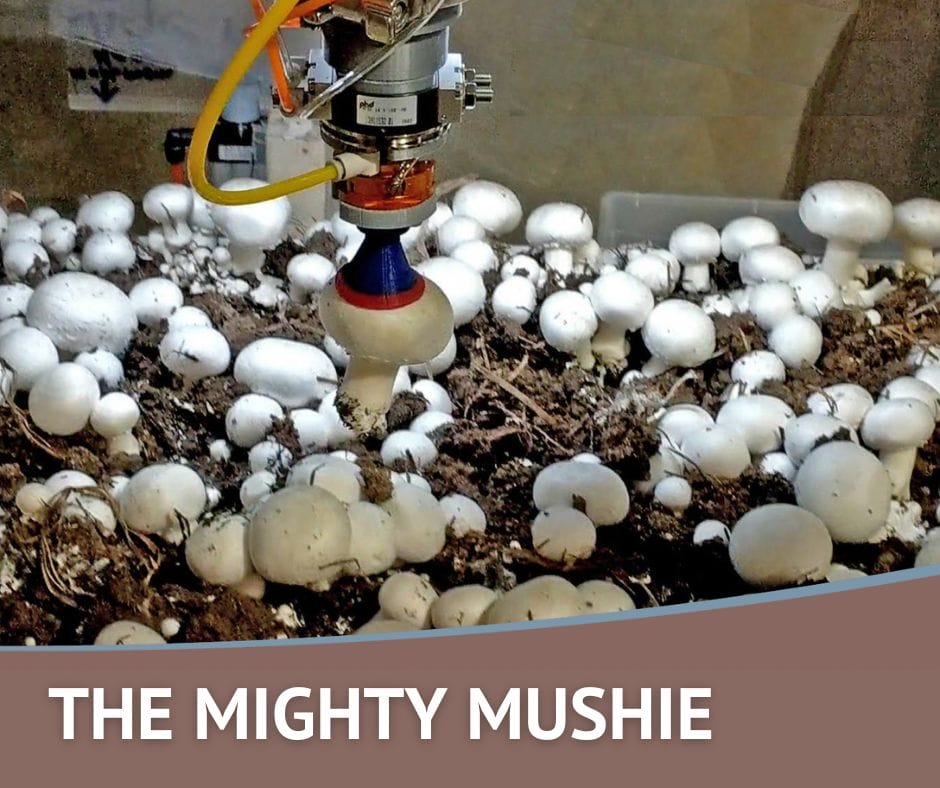The Mighty Mushie

Produced By:
PIEFA
States:
Qld, NSW, SA, NT, ACT, Tas, WA
Aimed at:
Grade 5
- 10
Curriculum 9.0:
AC9S7U01, AC9S8U01, AC9S8U02, AC9S7I01, AC9S8I01, AC9S7I03, AC9S8I03, AC9S7I04, AC9S8I04, AC9S7U02, AC9TDE10K01, AC9TDE10K02, AC9TDE10K04, AC9TDE10K05
Lesson Type:
Subjects:
Keywords:
Mushroom, mushies, card game, compost, farming, growing, picking, growers, producer, fungi, spores, sustainable, mushrooms
The Mighty Mushie
Access this suite of educational resources to learn about the Mighty Mushy! Through interactive, curriculum-aligned card games, worksheets and accompanying videos clips, students from Years 5 to 10 will discover the world of mushrooms. Year 7-8 Science students will explore mushrooms in ecosystems, and learn about their classification and the role they play in energy flow in ecosystems. Students will gain insights into the growth patterns and distinctive features of the Agaricus bisporus mushroom and investigate and observe trends in data in the classroom. Year 9-10 Design and Technologies students will learn about the production cycle of the Agaricus bisporus mushroom from farm to family, the features of the supply chain as well as the preservation, preparation and consumption of this significant Australian product.
By participating in a hands-on card game, students will learn to sequence the process of converting ‘on-farm’ food into a product, suitable for retail sale. Additionally, they will gain an understanding of the careers involved in the supply chain of mushrooms from Farm to Family.
Download the card game designs in PDF format now (simply cut out and use). The card game resource includes:
- Card Box > DOWNLOAD HERE
- Cards > DOWNLOAD HERE
- Card sheet > DOWNLOAD HERE
- Instructions > DOWNLOAD HERE
Addressing the Science learning area for Years 7-8, this suite of resources will engage students with the following 4 lessons:
L1 | What are Mushrooms? – A Focus on Classification
Teacher Guide: DOWNLOAD L1 (Yr7-8) What are Mushrooms – Teacher Guide
Student Worksheet: DOWNLOAD L1 (Yr7-8) What are Mushrooms – Student Worksheets
L2 | Mushrooms, Foods Webs and Energy Flow
Teacher Guide: DOWNLOAD L2 (Yr7-8) Mushrooms, Foods Webs and Energy Flow – Teacher Guide
Student Worksheet: DOWNLOAD L2 (Yr7-8) Mushrooms, Foods Webs and Energy Flow – Student Worksheets
L3 | Identifying Mushrooms Using and Designing Dichotomous Keys
Teacher Guide: DOWNLOAD L3 (Yr7-8) Identifying Mushrooms Using and Designing Dichotomous Keys – Teacher Guide
Student Worksheet: DOWNLOAD L3 (Yr7-8) Identifying Mushrooms Using and Designing Dichotomous Keys – Student Worksheets
L4 | Investigating the Growth of Mushrooms
Teacher Guide: DOWNLOAD L4 (Yr7-8) Investigating the Growth of Mushrooms – Teacher Guide
Student Worksheet: DOWNLOAD L4 (Yr7-8) Investigating the Growth of Mushrooms – Student Worksheets
Addressing the Design and Technologies learning area for Years 9-10, this suite of resources will engage students with the following 4 lessons:
L1 | Mushrooms – The Sustainable Food Choice for Preferred Futures
Teacher Guide: DOWNLOAD L1 (Yr9-10) Mushrooms – The Sustainable Food Choice for Preferred Futures – Teacher Guide
Student Worksheet: DOWNLOAD L1 (Yr9-10) Mushrooms – The Sustainable Food Choice for Preferred Futures – Student Worksheets
L2 | Mushrooms – Technology, Innovation and Careers
Teacher Guide: DOWNLOAD L2 (Yr9-10) Mushrooms – Technology, Innovation and Careers – Teacher Guide
Student Worksheet: DOWNLOAD L2 (Yr9-10) Mushrooms – Technology, Innovation and Careers – Student Worksheets
L3 | Mushrooms – The Supply and Marketing Chain
Teacher Guide: DOWNLOAD L3 (Yr9-10) Mushrooms – The Supply and Marketing Chain – Teacher Guide
Student Worksheet: DOWNLOAD L3 (Yr9-10) Mushrooms – The Supply and Marketing Chain – Student Worksheets
L4 | Mushrooms – A Focus on Healthy Eating and Preparation
Teacher Guide: DOWNLOAD L4 (Yr9-10) Mushrooms – A Focus on Healthy Eating and Preparation – Teacher Guide
Student Worksheet: DOWNLOAD L4 (Yr9-10) Mushrooms – A Focus on Healthy Eating and Preparation – Student Worksheets
The Mighty Mushies resources have been developed by PIEFA with collaboration and input from the following organisations:





